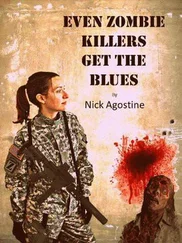One thing that is certain is that the President, the new President, was an uncertain man that morning. In the salts of his bile, he felt lumpy. Somehow, he had a nagging suspicion that the last President wouldn't have allowed himself to be called into a meeting on whooping cranes and cowgirls. The last President, thought the new President, would have ordered his aides to take whatever action was most politically expedient in regard to the cranes, while he, the last President, never one to relish the intimacy of social problems, jetted off to Peking or Moscow or Cairo to make historical hay from the international situation, which was desperate, as usual. The new President felt cheapened, felt wimpy about being expected to preside over a meeting on long-legged birds. Indeed, he would have refused had he not been informed that Pentagon and Petroleum wished him to confer. New on the job though he was, he sensed that as President he could no more ignore Pentagon and Petroleum than he could as congressman, but he sensed, too, in the bubbles of his bile, that he would regret that goddamned meeting on whooping cranes.
The interest of the military and the oil lobby in the Rubber Rose affair was recent. Heretofore, the matter was the concern of the justice Department, which sought to end (in its usual fashion) what it regarded as defiance, subversion and criminal misappropriation of federal property, and of the Interior Department, which sought to get the cranes back on the job and out of its hair. When the generals and oil men suggested a different approach, however, Justice and Interior were, for the most part, in accord.
The meeting opened with the director of the FBI explaining to the new President how the cowgirls had set up their barricades directly in front of the crane flock. “A devilishly shrewd tactic,” he called it, for were federal agents to fire on the young women, the lives of the cranes would be jeopardized. “They're holding the cranes as hostages, as it were,” the FBI chief said. “They've got us over a barrel.”
He yielded the floor to Pentagon, represented by a four-star general from the Air Force. The general, with facts and figures pulled from a blue plastic folder, explained to the new President that this flock of whooping cranes had been a thorn in the flesh of the military for more than thirty years. Since 1942, by far the finest and most used bombing range in America had been the one on Matagorda Island, off the Gulf Coast of Texas. The majority of the B-52 crews that served in Vietnam had trained over the Matagorda range, for example. In addition, helicopter gunships had made frequent and effective use of Matagorda target runs. Because these whooping cranes winter on Matagorda, or on the nearby mainland across San Antonio Bay in what is known as the Aransas National Wildlife Refuge, the Air Force and Army had been frequently blamed by conservationists for the threatened extinction of the birds. Under pressure, even the Interior Department had begun to harass the Air Force about the bombing range. Naval and Coast Guard operations in the area had also been criticized and curbed, said the general. He told the new President that Pentagon considered the cranes detrimental to the best interests of America's defense.
The new President was not a thing of beauty, though, in truth, he was fairer to look upon than his predecessor. The new President possessed a face that might have comforted a lonely orangutan. One could draw a good likeness of the new President with a weenie dipped in fingerpaints. There was something close to farce in the manner in which the new President nodded his head quasi-sagely at the conclusion of Pentagon's testimony and in the way that head jerked to exaggerated attention when the oil lobbyist, pulling facts and figures from a black leather briefcase, began his spiel.
It was hardly necessary to remind the new President of the energy crisis, but the petroleum-pusher did so. Then he proceeded to inform the chief executive of large quantities of oil that lay wasting in the seabed because off-shore drilling in the Matagorda-Aransas region had been disallowed due to this one lousy flock of birds, birds that contributed not a copper to the Gross National Product and that held not a feather's weight in negotiations with the Arabs. You get the picture? The new President did. Maybe it was an overstatement to say the whooping cranes were crunchy granola in the bedsheets of the economy, but they were certainly one more obstacle to smoothing out that badly rumpled bed.
Once again, the FBI director took the floor. It was almost certain, said he, that there would be a showdown on the Dakota ranch. He described the so-called cowgirls as fanatical subversives violently opposed to the American way of life. These women wanted bloodshed, he said. They had mocked a court order, had refused to negotiate, were at that very moment pointing firearms, possibly of Communist origin, at government agents.
It seemed inevitable to the FBI director that federal lawmen would be fired upon. This did not worry the top cop, for the vastly superior firepower of the U.S. marshals and FBI agents would quickly and thoroughly prevail. Furthermore, there might be positive benefits from a shootout. Suppose that, in returning the cowgirl's fire, the marshals and agents should “accidentally” pepper the whooping cranes with shots? Suppose that canisters of extrastrength tear gas ostensibly lobbed at the cowgirls were to land in the midst of the birds, who were known to be fatally susceptible to tear gas? In the process of routing the rustlers, the crane flock could be so decimated that the government would be obliged to capture the few survivors and place them in zoos. Thus, in one fell swoop, the U.S. could rid itself of a band of troublemakers and the whooping crane nuisance. Could the President — in secret, of course — support such an action?
The new President wished he was on the golf course, wished he had a glass of whiskey, wished an aide would hand him a statement to read, wished this and wished that, but no fairy godmother attended the new President. It was September 29, Brigitte Bardot's birthday; perhaps all the wish-granters were in France waiting for Brigitte Bardot to blow out the candles on her cake.
At last the President opened his banana-biters to concede that the plan had merit, but that he did not believe the public would stand for federal agents shooting teen-aged girls.
The half-dozen others in the conference room disagreed. They pointed out that these girls were lawbreakers, armed, dangerous, immoral, disruptive influences, enemies of the public good — not unlike the young women who had been annihilated in Los Angeles. There would be no more of a public outcry than in the L.A. executions, and much less than in the suppression at Kent State. Moreover, with a little help from the press, the government should have no difficulty in blaming the tragic fate of the whooping cranes on the violent, lawless actions of the cowgirls. The fair-minded majority would believe the girls had gotten their just deserts.
“Besides,” said the man whom the new President had nominated to be the new Vice President, “it doesn't make any difference politically. The bleeding-hearts raked me over the coals for permitting the rioters at Attica Prison to be, ah, severely dealt with, but it hasn't hurt my career one iota. Mr. President, maybe you underestimate the moral sense of the American people.”
It was a convincing argument, though the way it was phrased did nothing to cream the texture of the presidential bile. The new President rolled his eyes from Pentagon to Petroleum. He was trapped and knew it. Narrowing the beam on his monkey lamps, to suggest that he was both thoughtful and independent, he said, “I'll have to give it some consideration.” He stood with an amateur actor's interpretation of dignity, banging his thigh painfully against the conference table. Expensive handtooled shoes, which he remembered now as having been a gift from the oil lobby, bore him from the room.
Читать дальше












